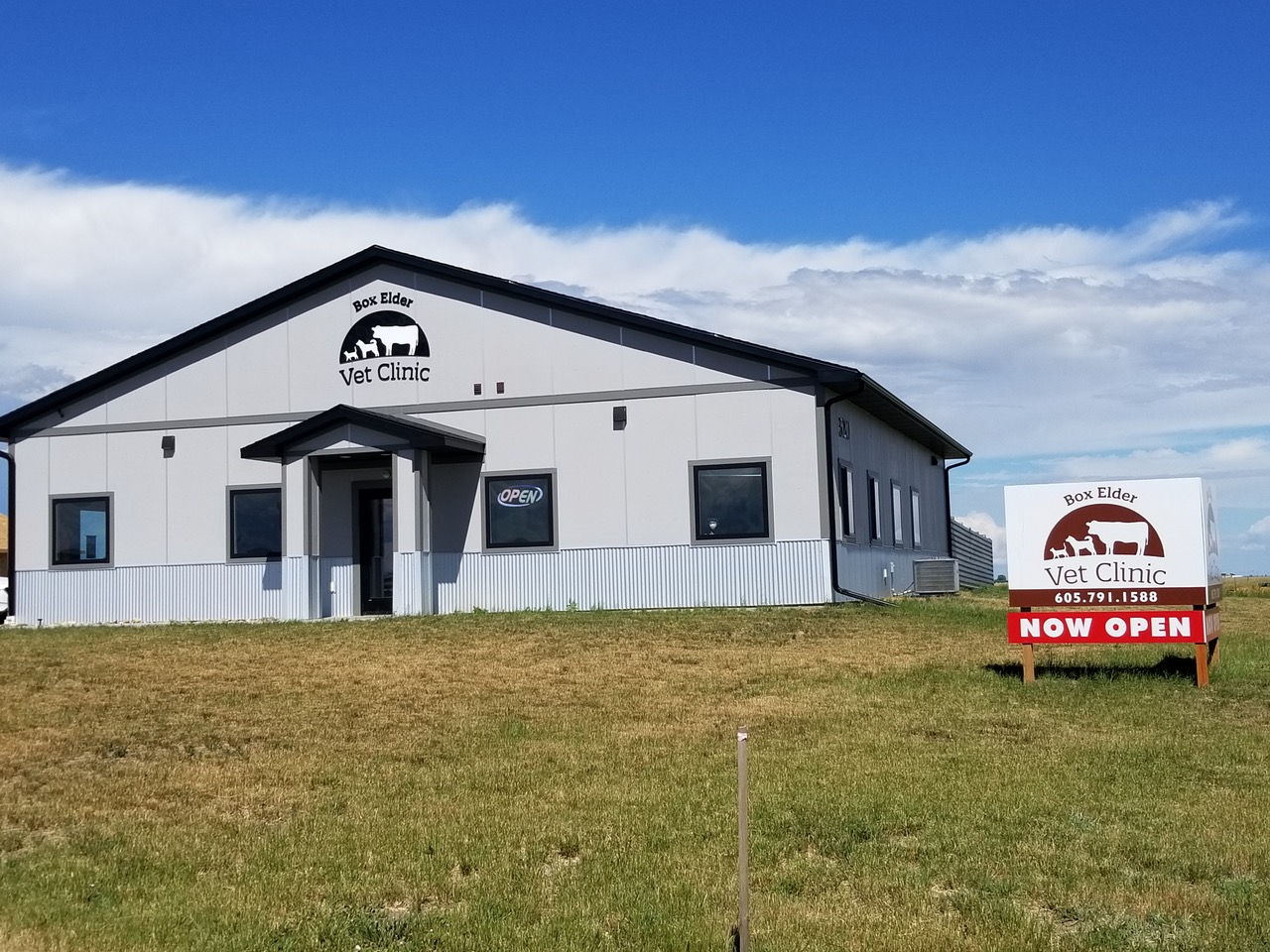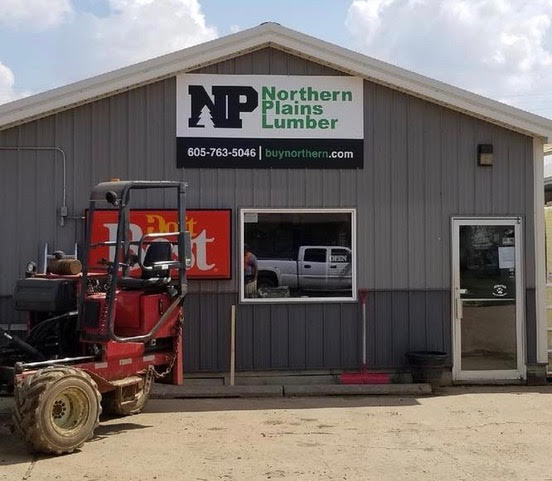
60
Agri-business

24 Jun 2020
Keeping a small town atmosphere in the wake of urban sprawl is an important step maintaining economic vitality and quality of life. A young veterinarian and a ranch couple with a veterinary background have recently provided that opportunity with the 2019 opening of the Box Elder Veterinary Clinic. The clinic was made possible through a June 2019 loan as part of West River Electric Asociation’s Rural Electric Economic Development (REED) Fund.
The Box Elder Veterinary Clinic provides preventative and emergency care to large and small animals in Box Elder, a suburb of Rapid City, South Dakota. The young veterinarian, Dr. Dustin Ahrendt, DVM, brought the clinic to the rapidly growing area without a veterinary clinic.
“I wanted to set up a veterinarian clinic in a South Dakota area of need and after working at a mixed animal clinic in eastern South Dakota, I wanted to expand my horizons and open up a clinic of my own,” said Ahrendt. “The REED Fund alleviated a huge financial burden as a brand new business going into its second year of operation.”
The group came together with a shared interest in starting a small town mixed animal clinic. As they researched areas of South Dakota without a veterinarian clinic, they quickly focused on the Box Elder area.
“I was very surprised to realize that Box Elder did not have a veterinary clinic, especially given the statistical data indicating it is one of the fastest growing communities in the state of South Dakota,” said Ahrendt. “Box Elder was a community that was in need of a veterinary clinic and all of Box Elder, from the citizens in the city and the surrounding communities, city officials and the nearby Air Force base have all been very supportive and welcomed us with open arms.”
Clinic officials have ?closely monitored the COVID-19 situation within the state and local area, with their response still in fluctuation in similar fashion to businesses across the country. They have attempted to accommodate clients to the best of their ability, such as altering their business practices to include curbside appointments, drop offs and staggering appointments to reduce contact exposures by limiting customers to one person per household into the building at a time.
“We have also enforced strict sanitation measures including spraying the rooms, pens and doors after each appointment,” said Ahrendt.
Despite the COVID-19 crisis, the clinic has been successful in bringing a small town atmosphere to the Box Elder area. Their location in a community experiencing exponential growth, as well as the presence of the nearby Air Force Base, has resulted in much higher growth than expected. The constant influx of new clients and patients has led them to hire more employees, up to seven now, and adding new treatment services such as cold laser therapy, dental x-rays, onsite cremation and evolving dental care.
West River Electric’s REED Fund provides gap financing to help start and expand businesses, create jobs and help communities improve facilities, services and infrastructure. Dick Johnson, CEO of West River Electric, says that providing funding to Box Elder Veterinary Clinic is a great opportunity to assist with keeping a local business in the community which can positively impact the lives of many.
“One of West River Electric’s core principles is Commitment to Community and the REED Fund is a good example of how we support local economic development,” said Johnson. “In today’s economy, employment and economic development continues to be challenging, so being able to assist through the REED Fund is very gratifying for us, knowing we are making a difference in our small communities and rural areas.”
The REED Fund members work closely with local banks, other loan funds and state and federal agencies to finance community and economic development projects. Approximately 81 percent of REED’s lending is established in communities of less than 5,000 people and 98 percent of REED-financed projects have local ownership.
“The REED Fund allowed us to do more in a shorter period of time, providing us the ability to grow in terms of hiring more staff members and to allow for a faster growth in our services offered,” said Ahrendt.


